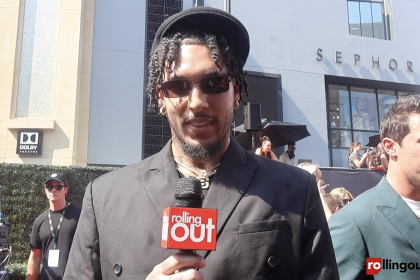
There’s research suggesting that those living in violence stricken communities are more likely to experience traumatic stress.
Cendrine Robinson, a clinical psychology student at Uniformed Services University of Health Sciences, recently published an article, “Dream & Nightmares: What Hip-Hop Can Teach Us About Black Youth,” in the American Psychological Association’s newsletter, In the Public Interest.
In the article, Robinson discusses her experience using hip-hop to counsel at-risk youth. Robinson writes, “Hip-hop therapy has elements of expressive therapy and cognitive behavioral therapy. Hip-Hop music is utilized to engage clients in treatment by helping establish rapport with the therapist. Music can also help clients identify emotions and reframe cognition.”
Robinson suggests that if we listen carefully, there may be a way to better address issues of violence within black communities.
“I’m originally from Chicago. Obviously there’s been a lot of attention on the gun violence there. I’m hoping that this [research] is something that will begin to be used to help that population in particular. I think that people are quick to judge that it’s ‘just black kids killing black kids,’ as opposed to children who have experienced trauma themselves,” said Robinson.
“Something I tried to argue in the article, is that you see this cycle of violence and trauma because these kids are more likely to commit these crimes.”
In order to reach her clients, Robinson understands she has to meet them where they are in the developmental process. If someone listens to Chief Keef religiously, she can’t immediately force them to listen to Common.
“… I strongly argue that you have to meet the client where they are — if the client is listening to Meek Mill, then I can’t say, ‘Well, today you’re going to listen to Talib Kweli’ or ‘You’re going to listen to Common.’ You can’t force anything on them. My approach in selecting songs is choosing what they’re listening to.”









